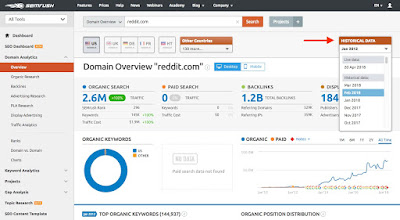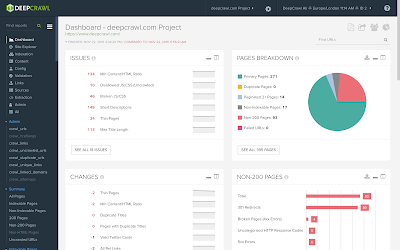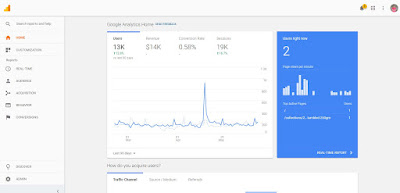- Get link
- X
- Other Apps
Posted by
Info Ocean Hub
on
- Get link
- X
- Other Apps
Find the most appropriate answer about what is SEO and which are the best SEO tools for digital marketing. Get your brand noticed & visible to the business leads by using the right platform of digital marketing. Indeed, people are looking for a company like yours.
But the concern is that "how would they find you amongst other competitors". Leave this big responsibility on the shoulders of Info Ocean Hub who are determined and dedicated to achieving the goals of your company. We can tell you the most effective strategies for your website so that you can increase traffic on your website.
What is SEO?
SEO or Search Engine Optimization is the process of organically ranking in search engines like google or yahoo through quality content that resulting in increased website traffic and visits.
How does SEO work?
Google program optimization may require not just basic SEO to point to look engine crawlers that they will index your website content. Eventually, rank your website high on program result pages or SERPs. Having the SEO basics will assist you to understand how SEO works, and make an enduring impact on your digital presence.
Here are a few SEO basics:
- Create your website within a defined logical content structure.
- Keep your site free of broken pages and links.
- Make sure every page has an enticing meta title and description.
- Get citations by listing your business in relevant places on the web.
- Polish your written copy for planning and execution purposes.
SEO works as a solid foundation of your SEO strategy, telling your users of your SEO value proposition they can regard as a search engine friendly and user friendly website.
What is a Search Engine?
A search engine is a user’s portal for accessing the information on the web. Whether you’re using Google, Bing, or Yahoo, a search engine aims to deliver the best possible result matching a user’s query.
Types of SEO
This is a very disputed topic because one says that there are two types of SEO and some say that there are three types. On-page SEO, Off-page SEO, and Technical SEO are the types of these. But some people believe that technical and on-page are the same.
1. On-page SEO
It includes strategies to optimize a private page on an internet site. These factors (all of which are outlined during this on-page SEO checklist) help search engines understand the subject of the content and see that the web site may be a valuable source that folks would want to seek out.
This type of SEO includes:
Keyword research: Finding the best keywords to target on a page of content
Content creation: Publishing high-quality content focused on target keywords
Keyword optimization: Using the target keyword in all the right places and using good meta tag SEO.
2. Off-page SEO
Off-page SEO techniques help strengthen the influence and relationship your website has with other websites.
It includes strategies to create a website’s reputation and authority. These factors help search engines see that an internet site is a perfect search result because it's from a reputable, reliable, trusted source.
Most off-site SEO relates to high–quality backlinks. an outsized volume of links pointing to your site from relevant, authoritative sites shows search engines that your site is effective and established. you'll gain these trust signals through a spread of link building and guest posting tactics.
3. Technical SEO
Technical SEO relates to non-content elements of your website.
It includes strategies to enhance a site’s backend structure and foundation. Technical SEO improves a site’s readability (which makes it easy for search engines to crawl and understand the site) and provides an honest user experience, which helps search engines see that the location is top quality . an honest user experience is additionally important for readers, and may affect overall traffic and engagement rates.
The types of SEO included in this category relate to:
Site speed
Mobile-friendliness
Indexing
Crawlability
Site architecture
Structured data
Security
What SEO Tools Should You Use?
1. Screaming Frog
Screaming Frog is a feature-rich SEO application that lets you crawl websites’ URLs and audit offline and online SEO. It also analyzes Meta descriptions and page titles to let you know if there are any discrepancies or duplicates on your website.
It also features Google Analytics integration, which allows you to access user data such as bounce rate, conversions, and revenue for landing pages.
2. Ahrefs
Your go-to tool for site auditing and backlink analysis. Ahrefs can do more than just diagnose and examine whether a website is SEO-ready to meet your traffic goals. They offer tools for competitive analysis, keyword research, backlink research, content research, daily rank tracking, and web monitoring.
Their website crawling ability comes in second to Google. This allows for thorough and precise results, which makes this a favorite SEO tool for many.3. SEMRush
If you don’t find Ahrefs to your liking then SEMRUSH might be a more suitable option for you. The software offers services from SEO dashboard, keyword analytics to marketing insights and social media tools, track your projects’ progress through their elegant and practical interface.
4. DeepCrawl
This is a web crawling tool that checks the performance of your website. Reports conducted by Deepcrawl include URL inspection, indexability, page uniqueness, bounce rates, page visits, time on page, load time, and more. Unlike Screaming Frog where you conduct the crawling manually, you can schedule when you want your website to be crawled. This will be a great tool in helping you do technical SEO and on-page SEO.
5. Google Analytics
Google Analytics is a must-have tool for any SEO. This is your gateway to measuring your SEO ROI, analyzing channels, and sources of traffic. It also provides user tracking ability to deliver information on bounce rate, session duration, and pages per session.
You can review online campaigns like tracking landing page quality and conversion by integrating Google Ads into the mix.
6. Google Search Console
This is an easy-to-use and free all-around web service for web marketers, SEO professionals, webmasters, and web owners to monitor site performance. This tool is useful when you’re diving into data about search traffic, technical status updates, and the overall health of a website.
7. Yoast
If you’ve been into SEO for some time now, you’ve probably been hearing this word everywhere. So what is Yoast? Yoast is one of the best – if not the best – WordPress plugin made for SEO. Yoast lets you automatically format Meta tags, as well as optimize sitemaps and content. It has everything a proper SEO tool should do.
Note: Know Facts About Diwali 2020
Note: Know about India Tour Of Australia 2020/21
- Get link
- X
- Other Apps
Comments









Nice
ReplyDeleteGreat content & Thanks for sharing ith oflox. Do you now What Is Parked Domain
ReplyDelete